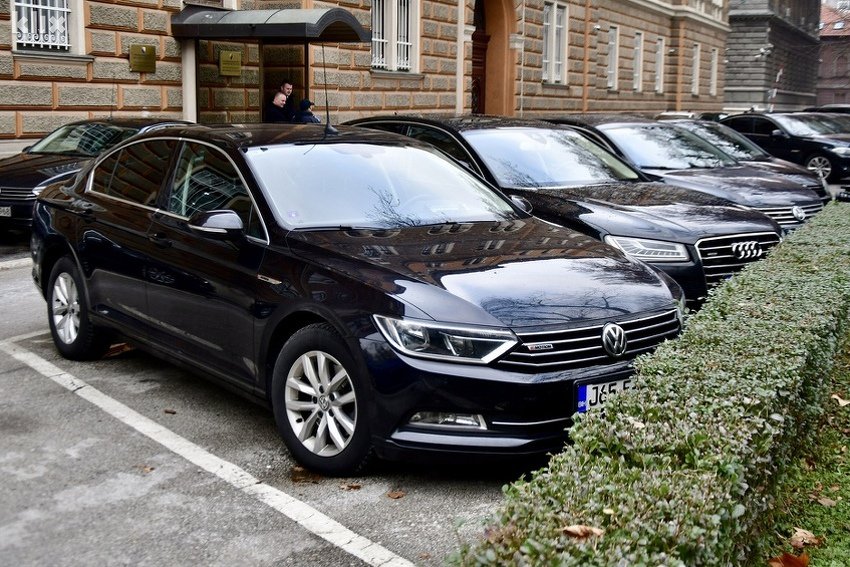Bosnia and Herzegovina – a country located in Southeast Europe, nestled between Croatia, Montenegro, and Serbia – has long been overlooked as a potential investment hub for global businesses. Despite being a hidden gem in the global investment landscape, Bosnia and Herzegovina is a country with a rich cultural heritage and a thriving economy that is ripe for investment.
With breathtaking landscapes, a growing tourist industry, and a business-friendly environment, Bosnia and Herzegovina is quickly becoming an attractive destination for international investors seeking to diversify their portfolios. In this post, we’ll take a closer look at why Bosnia and Herzegovina is a hidden gem for investment opportunities and the benefits of investing in this vibrant country.
Bosnia and Herzegovina has a rich and fascinating history that is deeply intertwined with its culture. From the influence of the Ottoman Empire to its tumultuous transition into a democracy following the war in the 1990s, the country’s past is a source of both pride and pain. Despite this, the people of Bosnia and Herzegovina have a strong sense of community and hospitality, which is reflected in their traditions and customs. From the vibrant festivals and markets to the delicious cuisine, there is always something to discover and enjoy in this beautiful country.
Geographical Location and Climate
Despite its central Balkan location, Bosnia and Herzegovina is almost completely landlocked, with only a slim passageway to the Adriatic Sea along the Neretva River. Because of its unique geography and topography, Croatia has a wide range of climatic zones, from temperate continental in the north and center to colder in the sub-mountainous and mountainous south and east, and Adriatic on the coast.
The country is also home to a rich biodiversity due to its three distinct geological and climatic regions. Bosnia and Herzegovina’s climate is influenced by the Adriatic Sea and local topography, making it a dynamic and interesting place to visit or do business.
Governance Structure and Stability
Bosnia and Herzegovina has undergone extensive political transition since the Dayton Peace Accords of 1995. The country has been working towards consolidating its emerging multiethnic and representative government, with the support of programs such as the Governance Accountability Project (GAP).
The project aims to build the capacity of partner municipalities to serve their citizens within a policy and fiscal framework of good governance, which has fostered political legitimacy for the government and improved the chances for sustained peace and inclusion in Bosnia and Herzegovina. These efforts toward stability and good governance underscore the potential for investment in the country’s future.
Bosnia and Herzegovina has made notable progress in terms of economic reforms and growth, yet challenges remain. With a three-year $608 million IMF loan to support ambitious reforms, the country aims to create a more competitive economy that can attract investment and generate jobs in the private sector.
The government’s economic program has set three main objectives: enhancing the business environment, improving the quality of government spending, and safeguarding financial stability. Successful implementation of these reforms would be crucial in realizing the country’s potential for growth and development.
Investor-Friendly Policies and Incentives
Bosnia and Herzegovina has implemented several investor-friendly policies and incentives to attract foreign direct investment. Some of these measures include reducing or eliminating the need to pay customs duties and fees, as well as standardizing and simplifying licensing and operational processes for businesses across the country to improve predictability, clarity, and transparency.
The government also adopted clear strategic guidelines on investment, including target sectors, source countries, and expected benefits to make investment promotion more effective. Despite its challenges, BiH offers opportunities for investors who are well-prepared and persistent.
Bosnia and Herzegovina’s energy and mining sectors have significant potential for growth and development. The country’s reserves of brown coal, lignite, iron ore, zinc, lead, and bauxite are estimated to be vast. Annual coal production amounts to approximately 15 million metric tons, and heavy mining equipment such as bulldozers, tractors, and excavators are in use.
Even though it takes a long time to get permission and there are not enough funds, recent foreign investment in mining has shown that it is possible to find large amounts of silver, lithium, borate, nickel, and other minerals.
Agriculture and Food Processing
Agriculture and food processing are crucial sectors in Bosnia and Herzegovina, accounting for 20% of total employment. With approximately one million hectares of arable land, the country’s primary agricultural products include fruits, vegetables, livestock, and poultry. However, the sector remains largely small and inefficient, and the country is a net food importer. There are opportunities for investment in improving productivity and efficiency, which can help increase the sector’s contribution to the country’s GDP.
Bosnia and Herzegovina offers a truly unique travel experience filled with warm hospitality and stunning natural landscapes. Despite being one of the least visited countries in Europe, it is quickly becoming a popular destination for travelers seeking an authentic cultural experience.
The Global Travel & Tourism Resilience Council and the United States Agency for International Development’s (USAID) Developing Sustainable Tourism in Bosnia and Herzegovina project is helping the country improve its tourism offerings, train its workforce, and boost local enterprises. From its enchanting waterfalls and medieval castles to its delicious local cuisine, Bosnia and Herzegovina is a hidden gem waiting to be discovered.
Information Technology and Innovation
Bosnia and Herzegovina’s information technology and innovation sector is growing rapidly, with initiatives like IT SPOT and support for digital innovation hubs driving development. Startups and entrepreneurs can find resources and grants through various programs, including the UNICEF Innovation Fund and the EU’s Horizon Europe.
The country’s focus on innovation extends to academia as well, with events and workshops centered around boosting academia-industry collaboration and innovation management. With the right partners and planning, the country’s IT and innovation sector has the potential to drive economic growth and transformation.
Business-Friendly Regulatory Framework
Bosnia and Herzegovina boasts a business-friendly regulatory framework that includes a treaty-based investor-state arbitration mechanism. However, arbitration overview is still an underutilized alternative dispute resolution method. The country’s government is actively working to raise awareness and promote the benefits of arbitration.
UNCTAD’s work program on international investment agreements (IIAs) is also actively assisting the government in reforming IIAs to make them more conducive to sustainable development and inclusive growth. Overall, Bosnia and Herzegovina has the potential to become a prime investment location with its investor-friendly policies and incentives.
Future Expectations and Potential for Growth and Development
Bosnia and Herzegovina is a hidden gem in the global investment landscape with a promising future. The country has made significant progress in economic reforms and governance stability. With investor-friendly policies and incentives, a business-friendly regulatory framework, and potential for growth in various sectors such as energy and mining, agriculture and food processing, tourism, and information technology, Bosnia and Herzegovina is positioning itself as an attractive investment destination. The country’s strategic geographical location and favorable climate also contribute to its potential for growth and development.



















